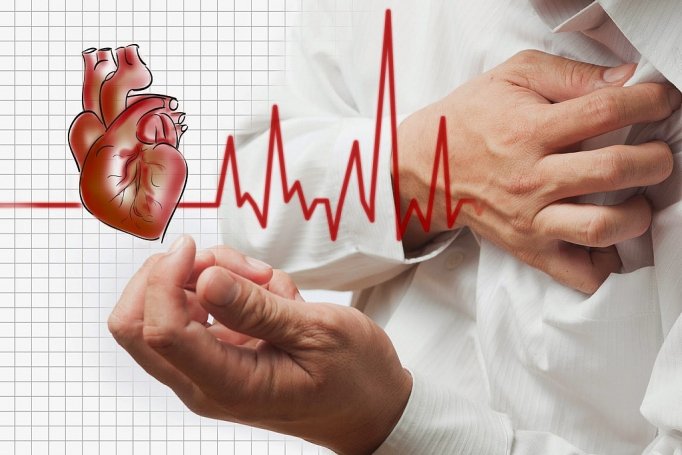A striking organ, the heart relentlessly pumps blood to every cell in your body. But what occurs if this crucial rhythm falters? Arrhythmias, or irregular heartbeats, can throw off your heart’s typical electrical signaling pattern. This in-depth blog post will cover all the information about irregular heartbeats, including the different types and causes, symptoms, diagnoses, available treatments, and preventative measures.
Understanding Arrhythmias or Irregular Heartbeat:
Any aberrant pattern of heart rhythms, in essence, constitutes an irregular heartbeat. They can be both life-threatening and harmless and afflict people of various ages. These can range from infrequent, unimportant palpitations to potentially fatal arrhythmias. The first step in identifying and treating cardiac anomalies is to understand the multiple forms of arrhythmias. Typical types include:
- Atrial Fibrillation (AFib): A common arrhythmia causes the heart’s atria, or upper chambers, to beat rapidly and irregularly.
- Bradycardia is characterized by a sluggish heartbeat, typically less than 60 beats per minute (BPM).
- Tachycardia: A rapid heartbeat, frequently more significant than 100 BPM.
- Ventricular Fibrillation: A severe, potentially fatal arrhythmia in which the ventricles, the heart’s lower chambers, tremble and inefficiently pump blood.
- Premature contractions: Early, additional heartbeats, known as premature contractions, can come from the atria (premature atrial contractions) or the ventricles (premature ventricular contractions).
Causes of Irregular Heartbeats:
For both prevention and treatment, it is critical to comprehend what causes irregular heartbeats. Typical causes and contributing factors are as follows:
- Heart Condition: Arrhythmias can be caused by structural heart issues such as coronary artery disease, heart valve difficulties, and cardiomyopathy.
- High Blood Pressure: Hypertension can make arrhythmias more likely.
- Electrolyte imbalances: Unhealthy blood levels of potassium, sodium, or calcium can interfere with the heart’s electrical function.
- Age: Arrhythmia risk seems to rise with advancing years.
- Medication and substances: Arrhythmias can be brought on by several prescribed medicines, illicit substances, and excessive alcohol or caffeine use.
Identifying Symptoms:
It’s essential to recognize the signs of irregular heartbeats to catch them early and get medical help immediately. Typical symptoms include:
- Chest discomfort or Discomfort: Some arrhythmias might result in heart attack-like chest discomfort.
- Palpitations: The sensation of your heart fluttering, skipping beats, beating, or racing.
- Fainting (Syncope): Losing consciousness, especially while exercising, is called fainting (Syncope).
- Feeling lightheaded or dizzy: Being weak or unsteady.
- Fatigue: Unaccounted for weakness or exhaustion.
- Shortness of breathing: Breathing problems, particularly when exercising or at rest, are known as shortness of breath.
Diagnosis and Treatment:
It’s critical to get medical help if you think you may have an irregular heartbeat or suffer any of the above symptoms. Your healthcare professional may use several techniques to identify arrhythmias, including:
- An electrocardiogram (ECG or EKG) records the heart’s electrical activity and is used mainly for diagnosing arrhythmias.
- An Event Monitor is a device similar to a Holter monitor but worn for longer durations to record irregular heartbeats.
- A Holter Monitor is a portable electrocardiogram that may be worn for up to 48 hours to monitor a patient’s heart rate and rhythm.
- An invasive process used to map the heart’s electrical circuitry and pinpoint the origins of arrhythmia, an electrophysiology study (EPS).
After a diagnosis, possible treatments may include:
- Medication: Antiarrhythmic drugs can help control heartbeats that don’t follow a regular pattern.
- Cardioversion: Electric shocks are used to change the beat of the heart.
- Ablation: Ablation is a treatment that uses a tube to block or remove faulty electrical paths in the heart.
- Implantable Cardioverter-Defibrillator (ICD): A device that can send shocks to fix dangerous heart rhythm problems.
- Pacemaker: A pacemaker is an inserted device that controls the heart’s beat. It is often used to treat slow heart rates.
Conclusion:
Irregular heartbeats can be benign or life-threatening. Diagnosing, understanding causes, and seeking medical attention are crucial. Adopting a heart-healthy lifestyle and following healthcare recommendations can protect heart rhythm. If you or a loved one are dealing with arrhythmias and seeking care in Dubai, Then the German Heart Center in Dubai can be a significant step toward effective diagnosis and treatment. The German Heart Center offers expert care, advanced diagnostics, and a comprehensive understanding of arrhythmias with expert Cardiologists in Dubai. Consult with the healthcare provider for appropriate treatment.

